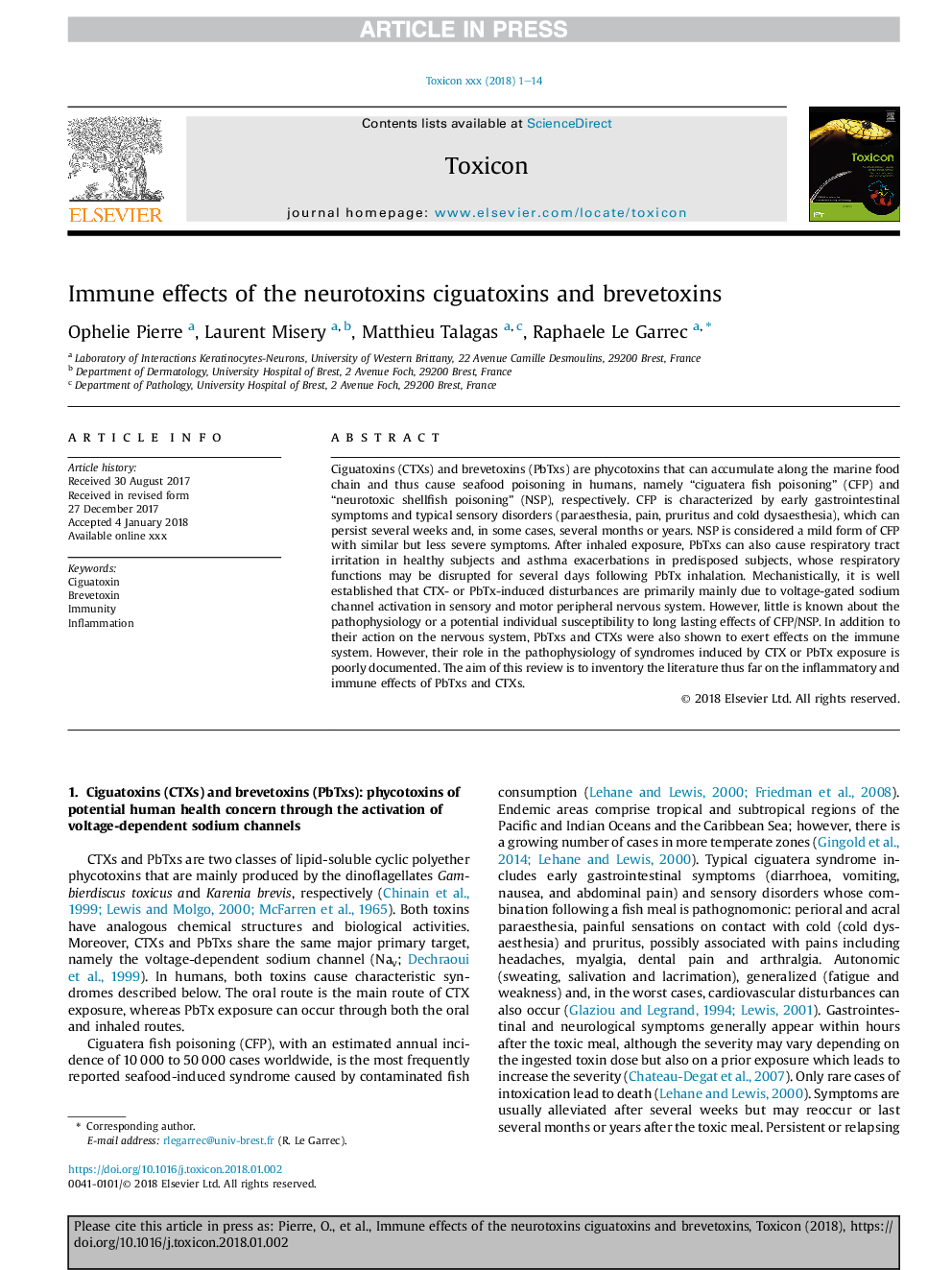| Article ID | Journal | Published Year | Pages | File Type |
|---|---|---|---|---|
| 8393893 | Toxicon | 2018 | 14 Pages |
Abstract
Ciguatoxins (CTXs) and brevetoxins (PbTxs) are phycotoxins that can accumulate along the marine food chain and thus cause seafood poisoning in humans, namely “ciguatera fish poisoning” (CFP) and “neurotoxic shellfish poisoning” (NSP), respectively. CFP is characterized by early gastrointestinal symptoms and typical sensory disorders (paraesthesia, pain, pruritus and cold dysaesthesia), which can persist several weeks and, in some cases, several months or years. NSP is considered a mild form of CFP with similar but less severe symptoms. After inhaled exposure, PbTxs can also cause respiratory tract irritation in healthy subjects and asthma exacerbations in predisposed subjects, whose respiratory functions may be disrupted for several days following PbTx inhalation. Mechanistically, it is well established that CTX- or PbTx-induced disturbances are primarily mainly due to voltage-gated sodium channel activation in sensory and motor peripheral nervous system. However, little is known about the pathophysiology or a potential individual susceptibility to long lasting effects of CFP/NSP. In addition to their action on the nervous system, PbTxs and CTXs were also shown to exert effects on the immune system. However, their role in the pathophysiology of syndromes induced by CTX or PbTx exposure is poorly documented. The aim of this review is to inventory the literature thus far on the inflammatory and immune effects of PbTxs and CTXs.
Related Topics
Life Sciences
Biochemistry, Genetics and Molecular Biology
Biochemistry, Genetics and Molecular Biology (General)
Authors
Ophelie Pierre, Laurent Misery, Matthieu Talagas, Raphaele Le Garrec,
